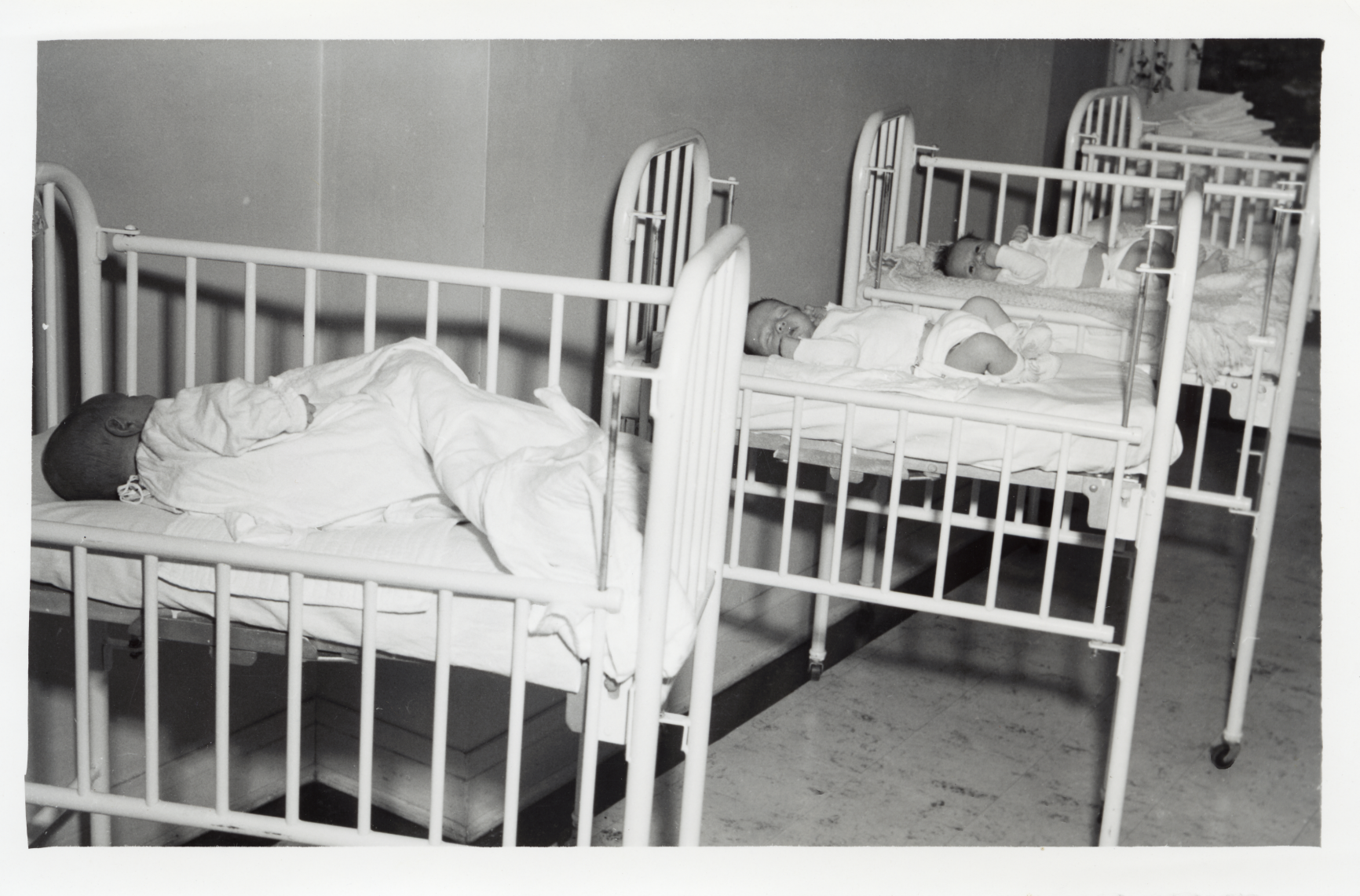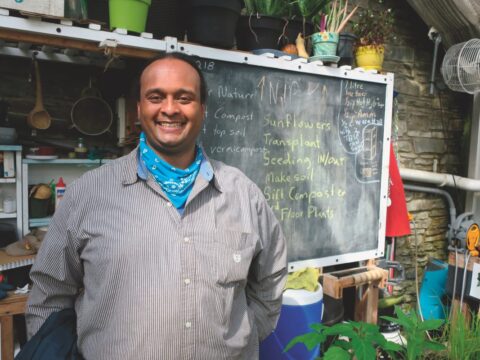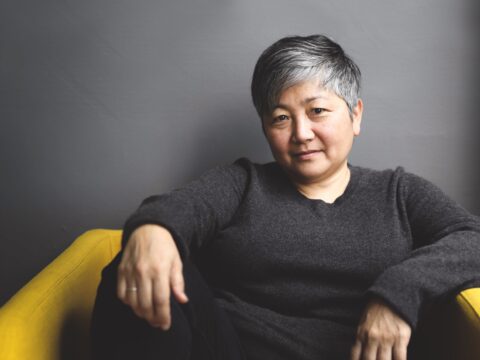Content warning: This story mentions thoughts of suicide.
The United Church of Canada has officially apologized for its role in separating mothers and babies through the maternity homes it ran for decades.
You may unsubscribe from any of our newsletters at any time.
On Friday, the General Council Executive passed the apology, which states that the organization’s “role in pressured, coerced, or forced adoptions created a legacy of pain and suffering.”
The church ran five of the dedicated maternity facilities from the end of World War 2 until 1980, and operated other institutions that housed unmarried, pregnant women as part of their mandate. The denomination says that most of the women were then pressured to give up their children for adoption.
“It is to our regret that we acted on that conviction that a single woman with a baby couldn’t be regarded as a responsible parent,” the church says in its apology. “Our participation in separating young unmarried mothers from their newly born children was, we now acknowledge, a practice that caused great harm and hurt and for that we are truly sorry.”
Bernadette Rymer, who stayed at the United Church-run Burnaby (B.C.) Home for Girls in 1969 and 1970 during her pregnancy and was pressured to give up her daughter for adoption, says the apology was an enormous relief.
“I could only read the first three or four paragraphs and I dissolved into uncontrollable sobbing,” she says. “The sense of relief was so profound. I couldn’t put it into words.”
She says the church is the first denomination of those that ran such facilities in Canada to come forward to apologize. She is also seeking an apology from the Roman Catholic Church. Her parents were devout Catholics, and a social worker from a Catholic charity managed the adoption.
“For a while, until last week, there was an admission that yes, we did this, but there was no apology or recognition of the harm,” she said of the United Church. “And now to see that in print, and the recognition that, yes, we could have been good mothers, the relief was just seismic.”
She says the messaging from the workers at the Burnaby Home for Girls stayed with her.
More on Broadview:
- Bernadette Dumas’s parents needed a place to hide her. Decades later, she’s still haunted by what she lost
- New film sheds light on forced adoptions in church-run homes
“They said terrible, terrible things to us about how sinful we were,” Rymer says of the workers at the home, “and we’d shamed our families and we couldn’t possibly be good parents and we’d ruin our children.”
Melanie Pothier, who the United Church hired to research United Church-run institutions, told The Observer in 2012 that she found no official mandate for the homes, nor any United Church policy. But the idea was to serve unwed mothers, who were seen as vulnerable. Some church workers also saw a benefit to offering healthy babies to childless married couples.
Rev. Daniel Hayward, the chairperson of the church’s Theology and Inter-Church Inter-Faith Committee, which recommended the denomination apologize, says that the move is only the latest step in a process that began in 2010 when the United Church began meeting with mothers, adoptees and others who were impacted by forced adoptions.
“It’s an attempt to tell birth mothers who had their children taken away for adoption, adoptees who have this as part of their story, family members who have been affected, that we are sorry for our actions during this time,” says Hayward.
Hayward spoke at 2018 Senate hearings on forced adoptions in the postwar period. A report later urged the churches involved in running the maternity facilities, including United, Anglican, Catholic, Presbyterian and The Salvation Army, to apologize. He was the only church representative present.
Rymer, who is the vice-president of an adoption reunion support network in British Columbia, says she’s pleased that the apology ends with broad commitments. But she wishes that it also included more concrete actions, like working with mothers and adoptee support groups to create reconciliation-type programs, to train social workers to understand the impact on mothers like her and to hire a staff member dedicated to this issue who could act as a resource and work with charities or other organizations to fund therapy.
Many of the women who spent time in the homes have either now died or are elderly. Rymer, who is no longer in touch with her daughter at her daughter’s request, says she wasn’t sure when the apology would come.
“It’s been 50 years, so I’m 70, and I was getting to the point where I probably won’t see an apology before I die,” she says. “And many have died and many have taken their own lives because the trauma is just too great. And until very recently, there wasn’t any help available.”
She had suicidal thoughts for many years, but meeting and marrying her husband, Jim, gave her support and something to live for.
“But before that, I thought about it quite a bit, because the burden is just, it’s so intense and it never goes away.”
***
Emma Prestwich is Broadview’s digital editor.
We hope you found this Broadview article engaging.
Our team is working hard to bring you more independent, award-winning journalism. But Broadview is a nonprofit and these are tough times for magazines. Please consider supporting our work. There are a number of ways to do so:
- Subscribe to our magazine and you’ll receive intelligent, timely stories and perspectives delivered to your home 10 times a year.
- Donate to our Friends Fund.
- Give the gift of Broadview to someone special in your life and make a difference!
Thank you for being such wonderful readers.
Jocelyn Bell
Editor/Publisher














I sit here & shake my head. Forced adoptions, forced life in Residential schools. When we operate under the dominance of JUDGEMENT then Love & respect go out the window under the felt righteousness of our uncaring & a denial of Love in God in the name of caring. I can say that as I’m an ordained minister of the United Church & spent my whole life in the church. If I heard the church speaking out against the shortcomings of our governments & people re. climate change, poverty, homelessness, eroding Health Care, death of Indigenous women & systemic racism, I would feel differentt..
Me and my brothers were taken away from our mother we didn’t even get to know who our real father was until we were a little older I didn’t even know who my mother was until I was like 11 years old I always thought my foster mother was my real mother except she looked a lot older then the other mothers on the reserve. Don’t get me wrong I love my foster parents but the way we’re brought up the white social workers told my foster parents that they were not allowed to speak our Indian language to us and not to teach us any Indian traditions that they know of. My mother always told me not to say anything when she used to come and visit but just to answer her questions not to lie. But if she did ask if our parents are talking to us in our native tongue we would have to fib a little and say no. It was not fair plus we had to go to these get togethers where we were the only native children there and we were picked on and we were beaten from all the other foster children because we’re the only native children there of course we fought back but growing up was not easy we are always picked on because we were adopted we’re always beat.